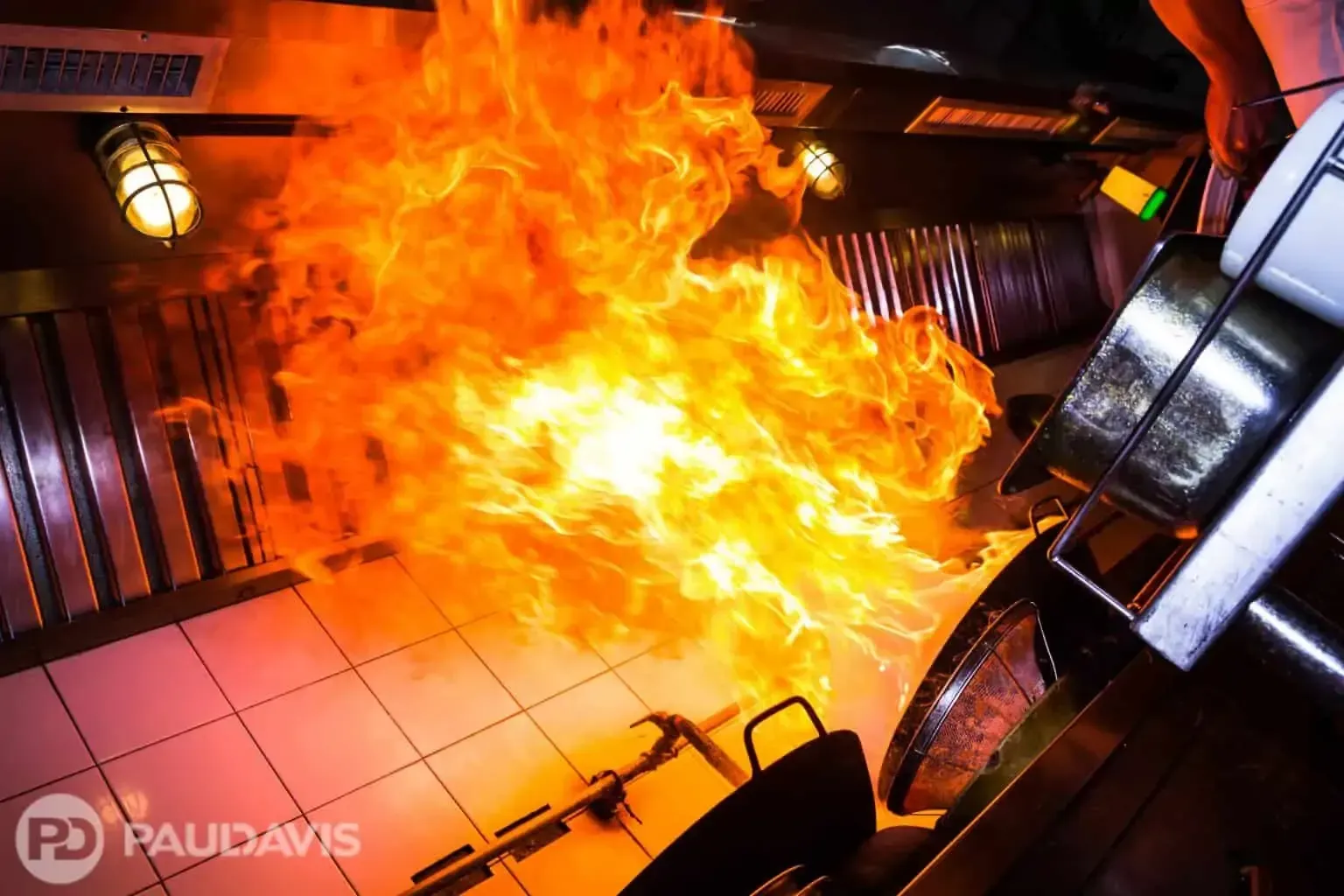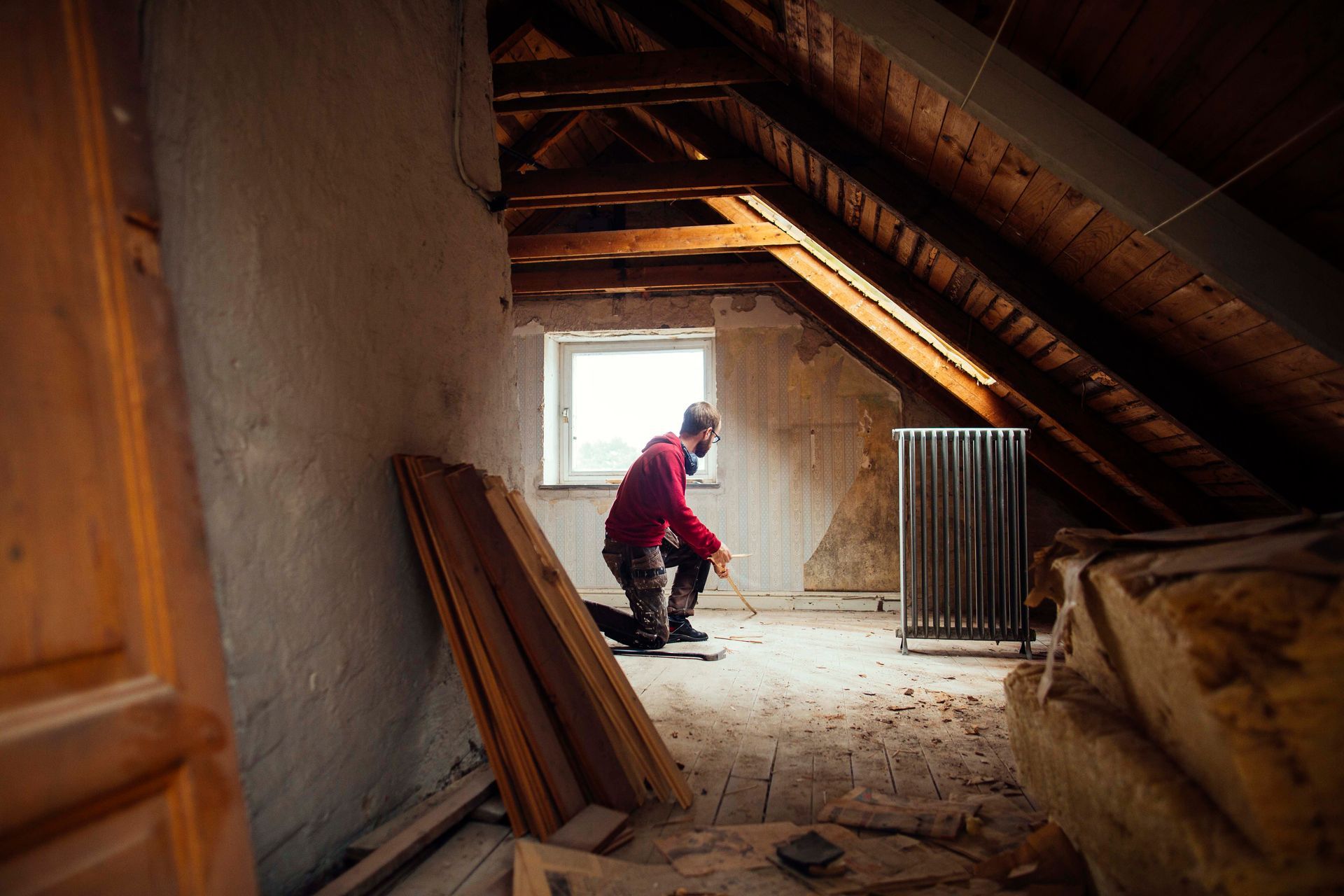Spot the Risks Before They Spark a Crisis

If you manage a commercial property, your days are full — tenant relations, inspections, maintenance, safety concerns, and a constant stream of moving parts. That’s why checklists are invaluable. They simplify complex processes and ensure critical tasks don’t fall through the cracks.
“Doctors, pilots, inspectors — they all use checklists to stay accurate and consistent,” says Darren Impson, President of Paul Davis of Tampa. “It’s no different for property managers. A structured list helps reduce liability and keeps buildings safer for everyone.”
Here’s a quick-hit checklist of eight common risks that could be impacting your commercial property — and how to address them before they become costly problems.
1. Kitchen Safety Systems
Does your property include a full-service kitchen or food prep area? These spaces are high-risk for fires. Make sure you have automated fire suppression systems installed in hoods and vents, and that they’re inspected and maintained regularly.
2. Improper Disposal of Hazardous Materials
From paint to solvents to cleaning agents, many commercial and multi-residential properties handle hazardous items. Ensure that storage and disposal systems meet safety standards and can handle materials like soaked rags or chemical runoff safely.
3. Missing or Inactive Sprinkler Systems
Fire sprinklers can reduce property damage by up to 70%. Confirm your building’s system is:
- Active and supplied with water
- Inspected regularly
- Protected from tampering or accidental damage
4. Neglected Maintenance or Housekeeping
Slippery entryways, flickering lights, broken fixtures, all pose safety hazards and liability risks. Good housekeeping is about more than appearances. It’s about protecting occupants, visitors, and your reputation.
5. Unsecured External Systems
Gas meters, electrical panels, waste bins, or fuel tanks outside the building can be targets for vandalism or accidental damage. Install proper enclosures or bollards where needed to protect critical infrastructure.
6. Risky Neighbours
Nearby businesses can affect your risk profile. Dust-generating operations, paint shops, pest control, or poorly maintained facilities can expose your property to secondary hazards. If needed, contact local authorities to address safety concerns.
7. Overloaded Electrical Systems
Have you added new equipment or expanded services? Ensure your electrical capacity is up to date. Extension cords and overloaded circuits are fire hazards. Get a qualified electrician to evaluate your system if you’re unsure.
8. Lack of Risk Monitoring
Conduct regular walkthroughs to look for slip hazards, poor lighting, missing signs, or unsecured entryways. Encourage staff and tenants to report safety concerns. Prevention is always cheaper than cleanup.
Partner With Paul Davis
Not sure where to start? Need a professional safety assessment?
Call Paul Davis Canada at
1-800-661-5975. Our team is available 24/7, ready to help you assess risks, respond to emergencies, and protect your commercial property with expert care.
Our Emergency Response Promise
Paul Davis franchisees across Canada are ready to respond to your property damage, 24/7.
We'll contact you within 30 minutes of your call
We’re onsite within hours
We document your process thoroughly
We serve you with empathy and concern for your situation



